Yoga Blog
Fueling Flexibility: Crafting Balanced Meals to Enhance Your Yoga Practice
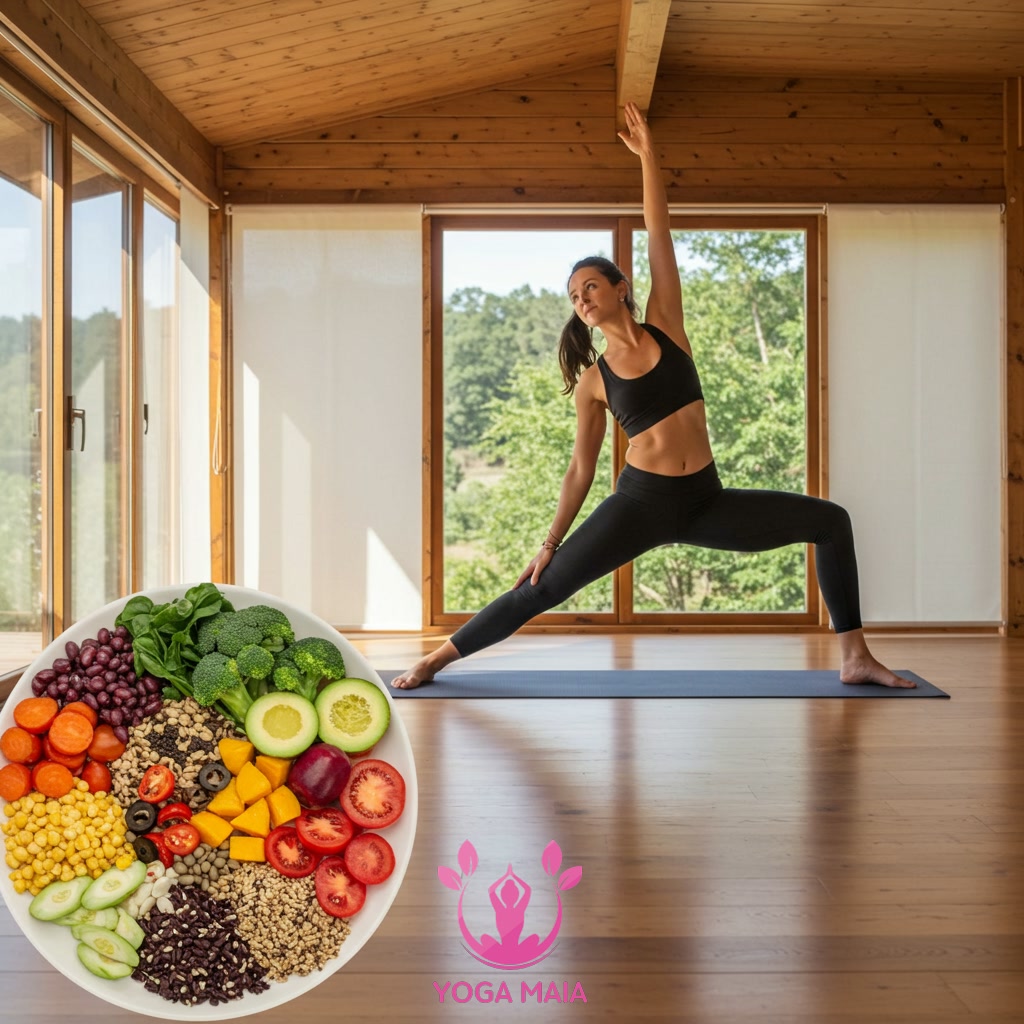
This content explores the vital connection between nutrition and physical performance, specifically focusing on how strategic eating supports flexibility. It delves into crafting balanced meals designed to optimize the body’s readiness for yoga postures and movements. By understanding which foods provide sustained energy and aid muscle recovery, practitioners can enhance their yoga practice. The aim is to show how proper fueling contributes directly to improved flexibility and overall well-being on the mat.
Table of Contents
- Section 1: The Foundation: Why Nutrition Fuels Your Yoga Practice
- Section 2: Key Nutrients for Flexibility and Energy on the Mat
- Section 3: Crafting Balanced Meals: Components and Combinations
- Section 4: Timing Your Fuel: Eating Before and After Yoga
- Section 5: Hydration: The Unsung Hero of Flexibility and Focus
- Section 6: Integrating Nutrition for a Holistic Yoga Journey
Section 1: The Foundation: Why Nutrition Fuels Your Yoga Practice
Your yoga practice is more than just physical postures; it’s a holistic connection with your body. At its core, your body is the vehicle for movement and flexibility, and just like any complex machine, it requires the right fuel to perform optimally. Nutrition provides the essential energy needed to sustain poses, the nutrients necessary for muscle strength and repair, and hydration critical for joint lubrication and overall flexibility. Eating balanced meals ensures your body has the stamina for longer flows, the resilience for challenging poses, and the ability to recover efficiently. Building this nutritional foundation is the fundamental step in unlocking your body’s full potential on the mat, directly enhancing your capacity for deeper stretches and more fluid transitions.
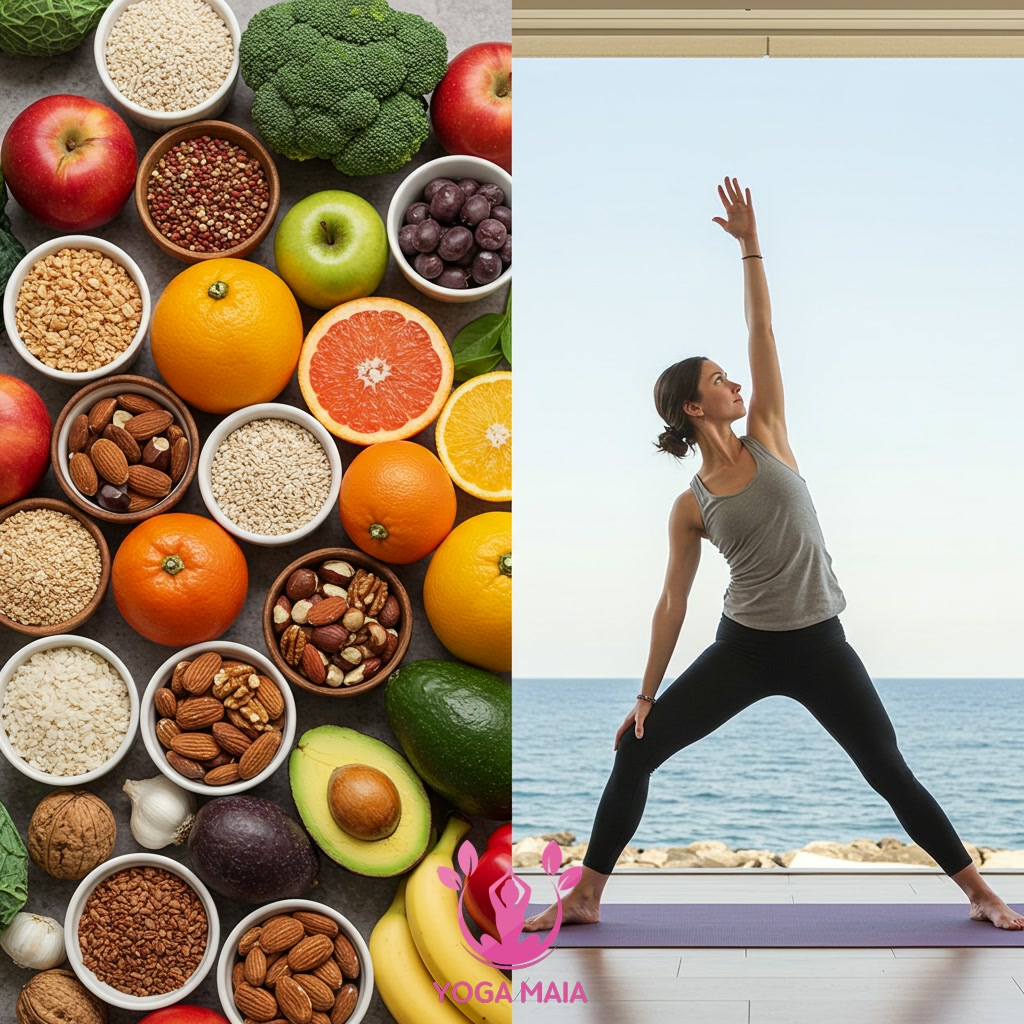 The Foundation: Why Nutrition Fuels Your Yoga Practice
The Foundation: Why Nutrition Fuels Your Yoga Practice
Section 2: Key Nutrients for Flexibility and Energy on the Mat
To effectively fuel your yoga practice and enhance flexibility, understanding key nutrients is paramount. Carbohydrates are your primary source of energy, providing the fuel needed for sustained postures and dynamic movements on the mat. Opt for complex carbs like whole grains, fruits, and vegetables for slow-release energy. Protein is crucial for muscle repair and recovery, essential after stretching and engaging muscles deeply; lean sources such as legumes, nuts, seeds, and lean meats support this process. Healthy fats, like those found in avocados, nuts, and olive oil, aid nutrient absorption and support joint health. Additionally, micronutrients – vitamins and minerals – play vital roles in muscle function, nerve signaling, and overall vitality, ensuring your body is ready and resilient for every pose.
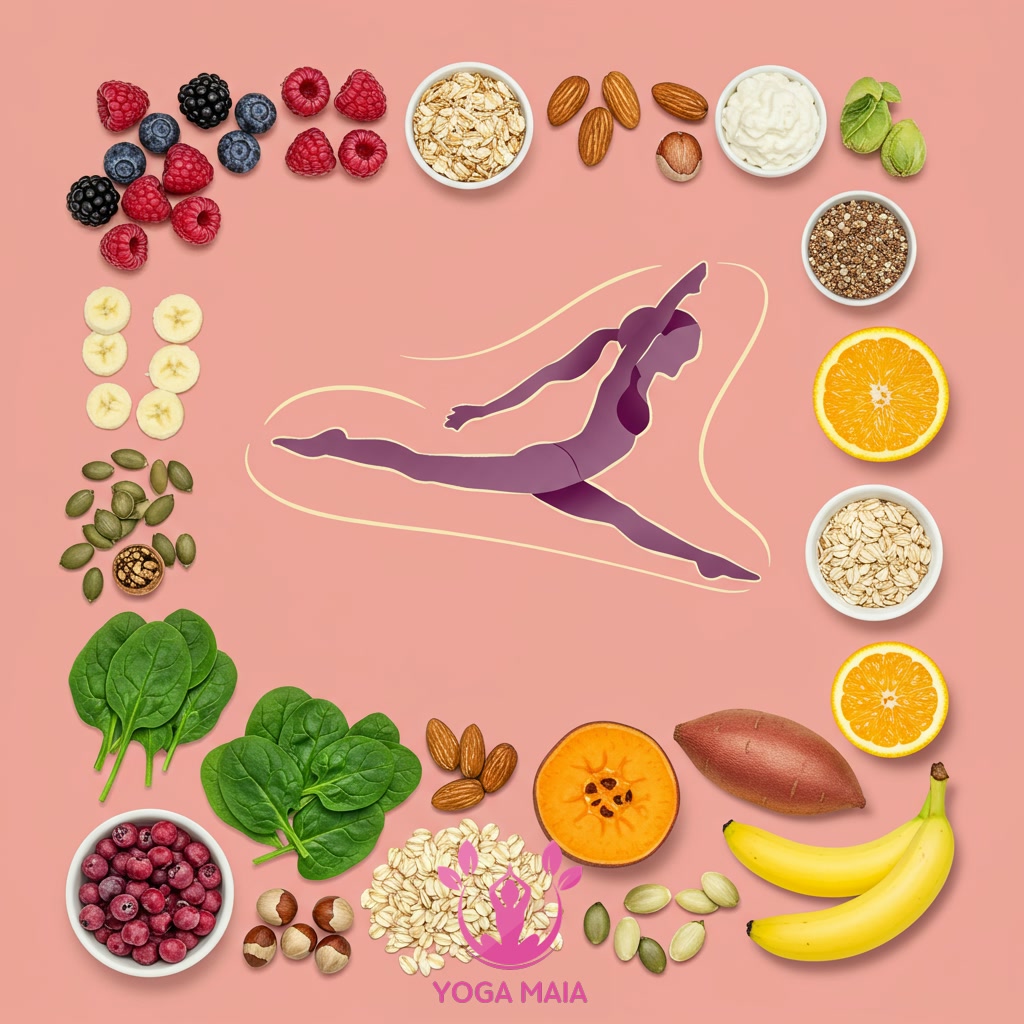 Key Nutrients for Flexibility and Energy on the Mat
Key Nutrients for Flexibility and Energy on the Mat
Section 3: Crafting Balanced Meals: Components and Combinations
Building upon the understanding of essential nutrients like carbohydrates for energy, protein for muscle repair, and healthy fats for satiety and nutrient absorption, crafting balanced meals involves strategically combining these elements. A meal designed to support your yoga practice should typically include a source of complex carbohydrates (like whole grains, fruits, or vegetables) for sustained energy throughout your session, lean protein to aid muscle recovery and repair after holds and movements, and healthy fats (such as avocados, nuts, or seeds) to help absorb fat-soluble vitamins and provide lasting fullness without feeling heavy. Incorporating a variety of colorful fruits and vegetables ensures a rich supply of vitamins, minerals, and antioxidants, which are crucial for overall bodily function and reducing inflammation. The key is to create combinations that are easily digestible, provide sustained energy, and support the body’s natural recovery processes, allowing you to approach your mat feeling nourished and ready.
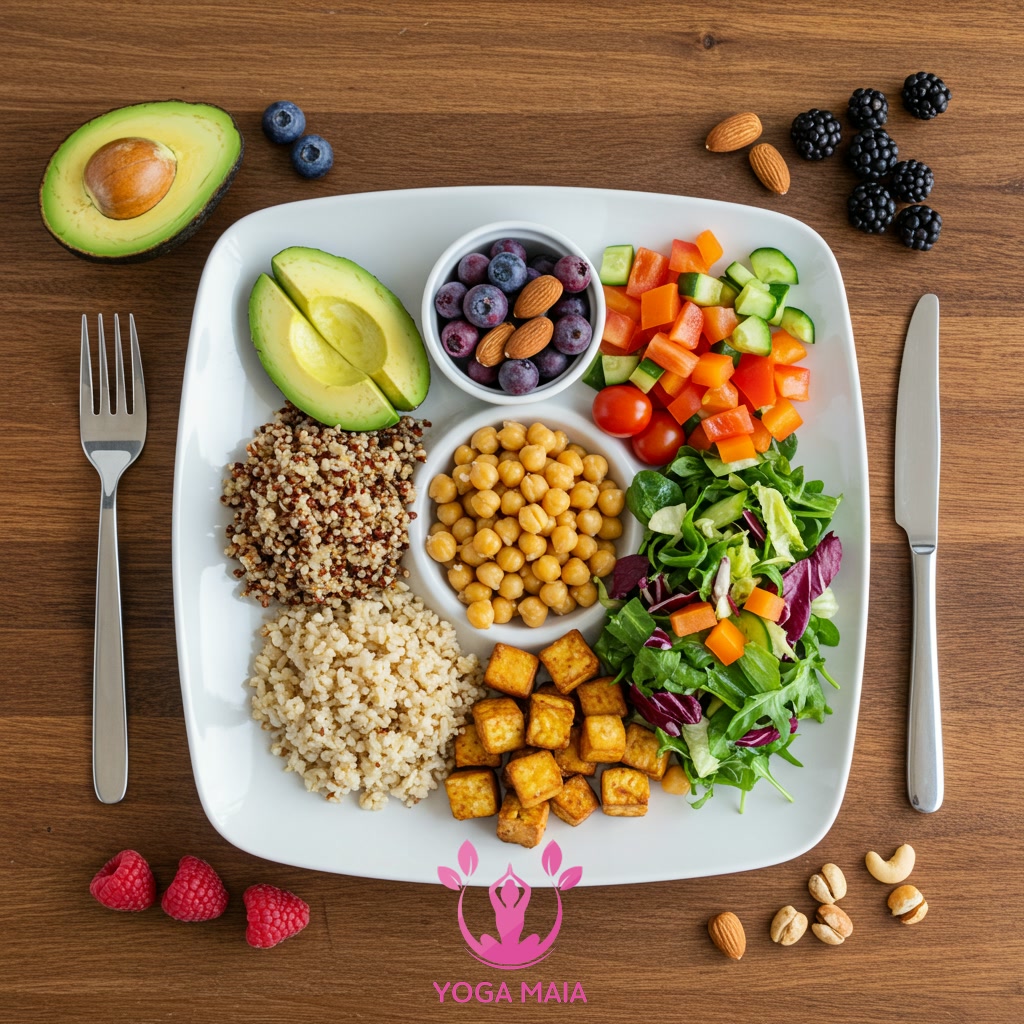 Crafting Balanced Meals: Components and Combinations
Crafting Balanced Meals: Components and Combinations
Section 4: Timing Your Fuel: Eating Before and After Yoga
Beyond understanding *what* to eat, *when* you fuel your body in relation to your yoga practice significantly impacts your comfort and energy levels. Eating a heavy meal right before class can lead to discomfort or sluggishness during postures, especially twists or inversions. Aim to finish a substantial meal at least 2-3 hours before your practice. If you need a little energy closer to your session, a small, easily digestible snack like a banana or a few dates 30-60 minutes prior can be helpful. After your practice, focus on refueling within an hour or two with a balanced meal containing both carbohydrates to replenish energy stores and protein to support muscle repair and recovery. Proper timing ensures you feel light yet energized on the mat and aids your body’s ability to recover and build strength afterwards.
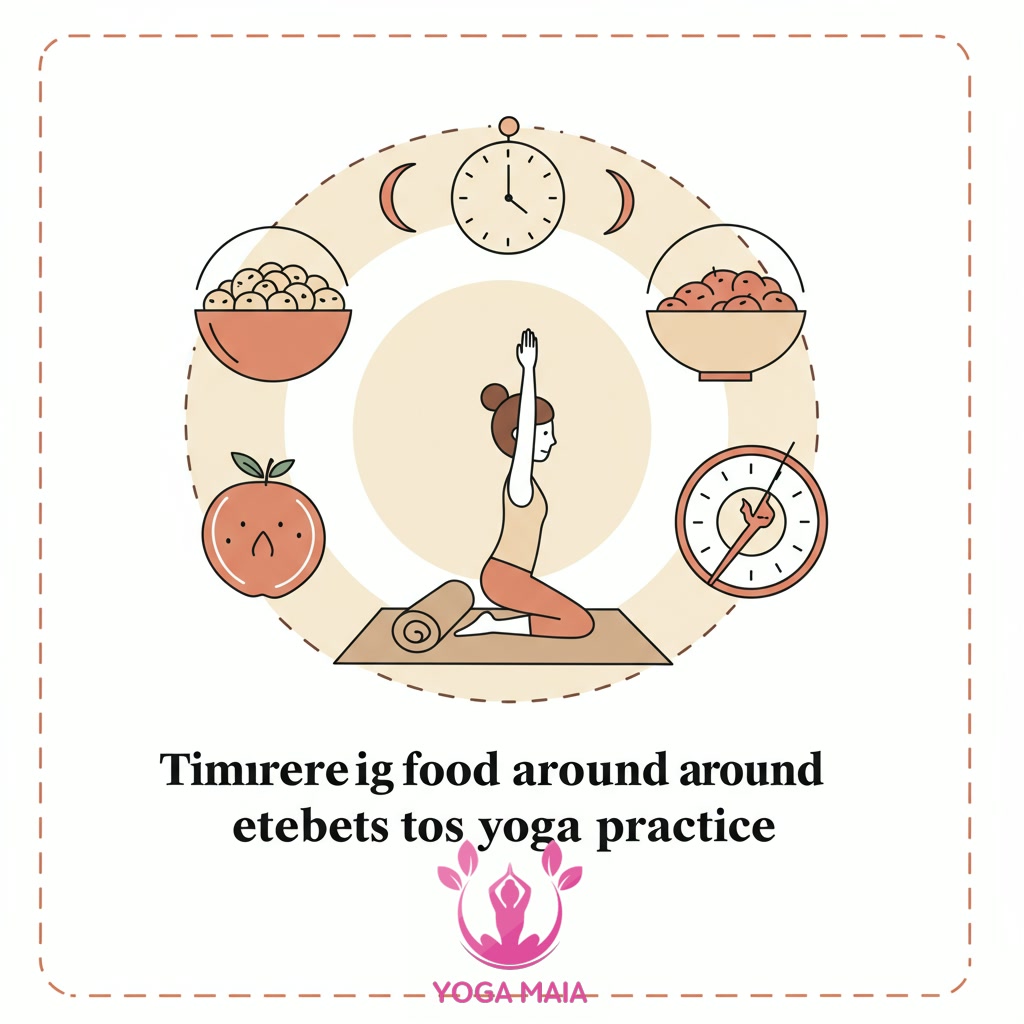 Timing Your Fuel: Eating Before and After Yoga
Timing Your Fuel: Eating Before and After Yoga
Section 5: Hydration: The Unsung Hero of Flexibility and Focus
Moving beyond the timing of your meals, perhaps the most fundamental, yet often overlooked, element for enhancing both physical flexibility and mental focus in yoga is proper hydration. Water is essential for countless bodily functions, including maintaining the elasticity and lubrication of muscles, connective tissues, and joints. When dehydrated, tissues become less pliable, increasing the risk of stiffness and discomfort in poses. Dehydration also significantly impacts cognitive function, leading to reduced concentration, fatigue, and headaches, all of which detract from your ability to stay present and mindful on the mat. Ensuring you are well-hydrated throughout the day, not just immediately before practice, provides the foundational support your body needs to move freely and your mind needs to stay centered.
 Hydration: The Unsung Hero of Flexibility and Focus
Hydration: The Unsung Hero of Flexibility and Focus
Section 6: Integrating Nutrition for a Holistic Yoga Journey
Building on the foundation of proper hydration, integrating balanced nutrition into your daily routine is the next crucial step towards a truly holistic yoga journey. It’s not solely about fueling for physical performance or flexibility; strategic eating nourishes the entire system – body, mind, and spirit. Consuming nutrient-dense foods provides the sustained energy needed for practice while supporting muscle recovery and reducing inflammation, allowing for deeper stretches and improved mobility. Beyond the physical, proper nutrition enhances mental clarity, focus, and emotional balance, qualities essential for mindful movement and meditation. Embracing nutrition as an integral part of your yoga path means making conscious food choices that resonate with the principles of self-care and well-being cultivated on the mat, fostering a harmonious connection between your internal state and external practice.
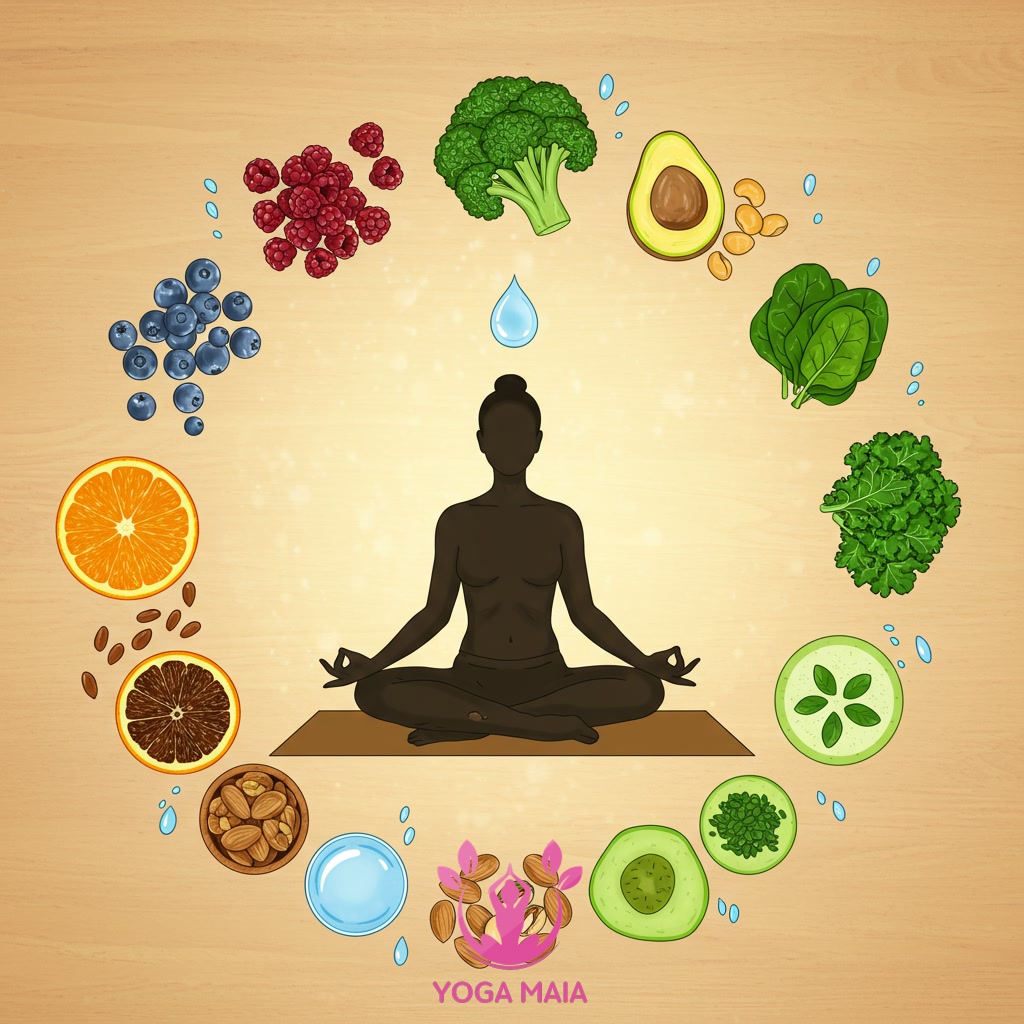 Integrating Nutrition for a Holistic Yoga Journey
Integrating Nutrition for a Holistic Yoga Journey












